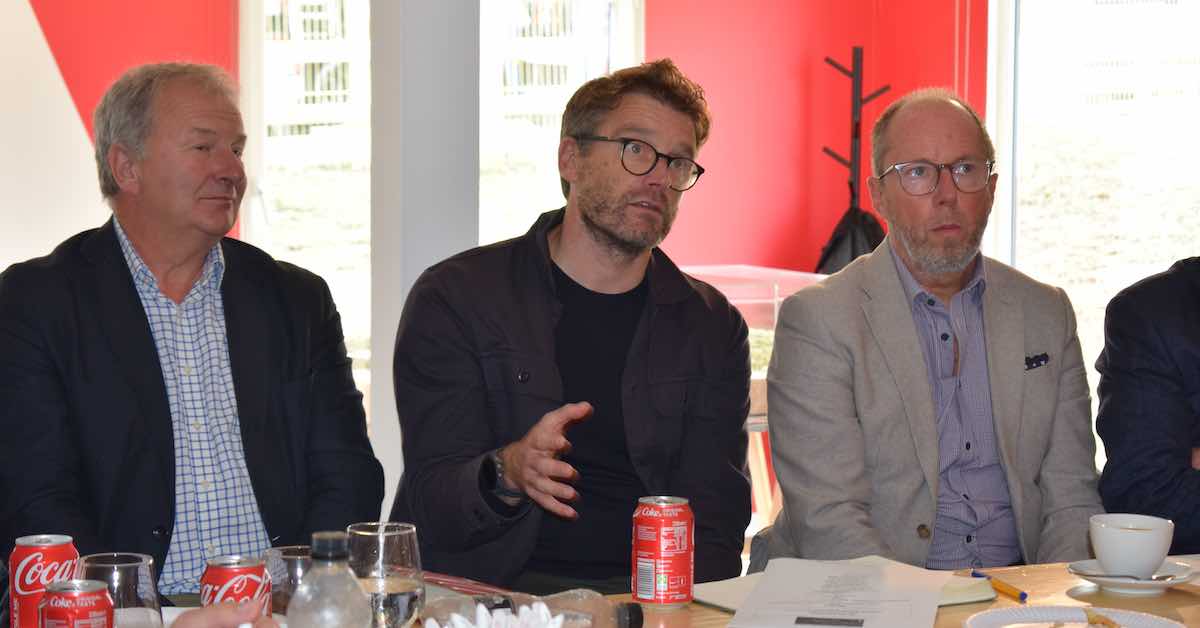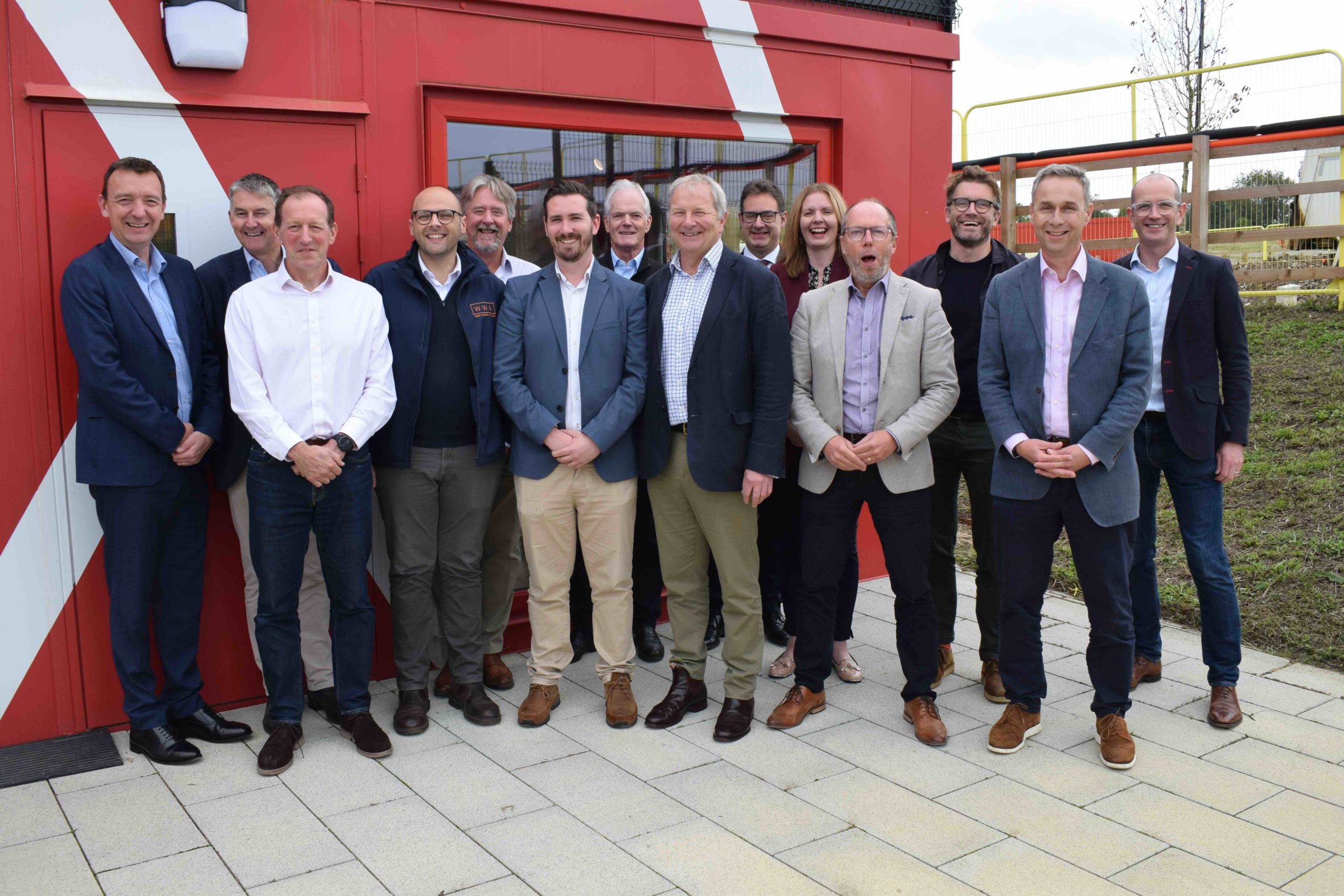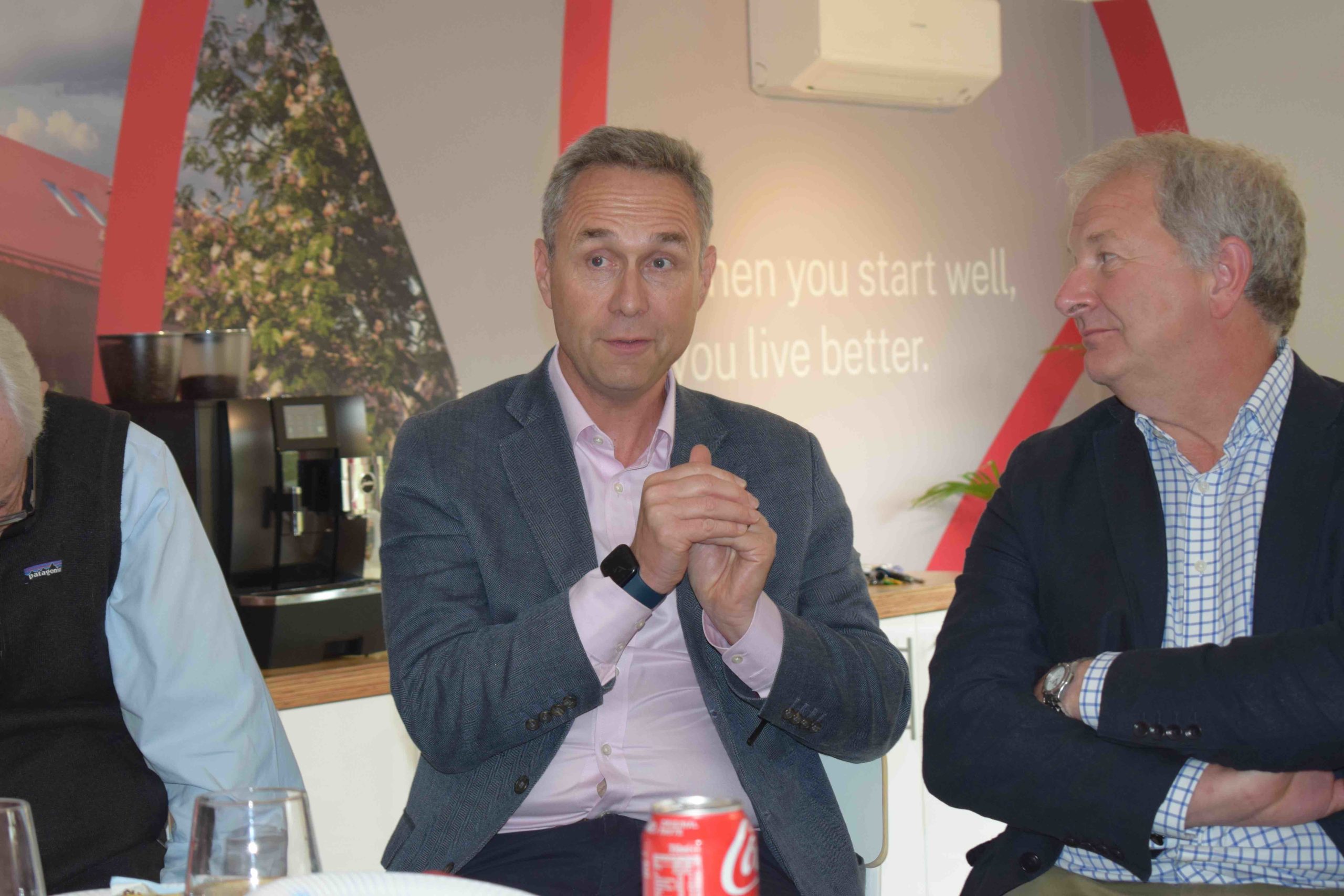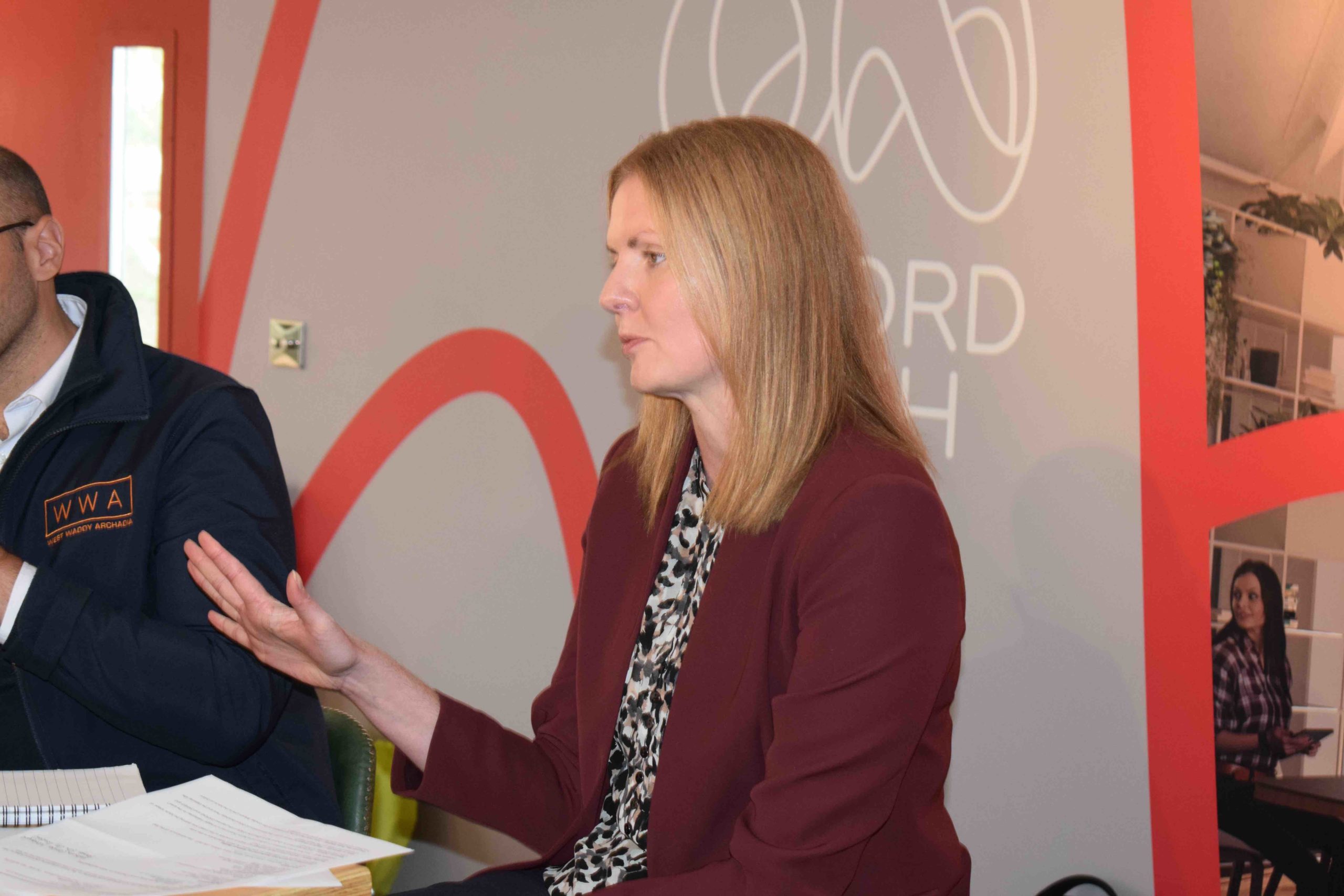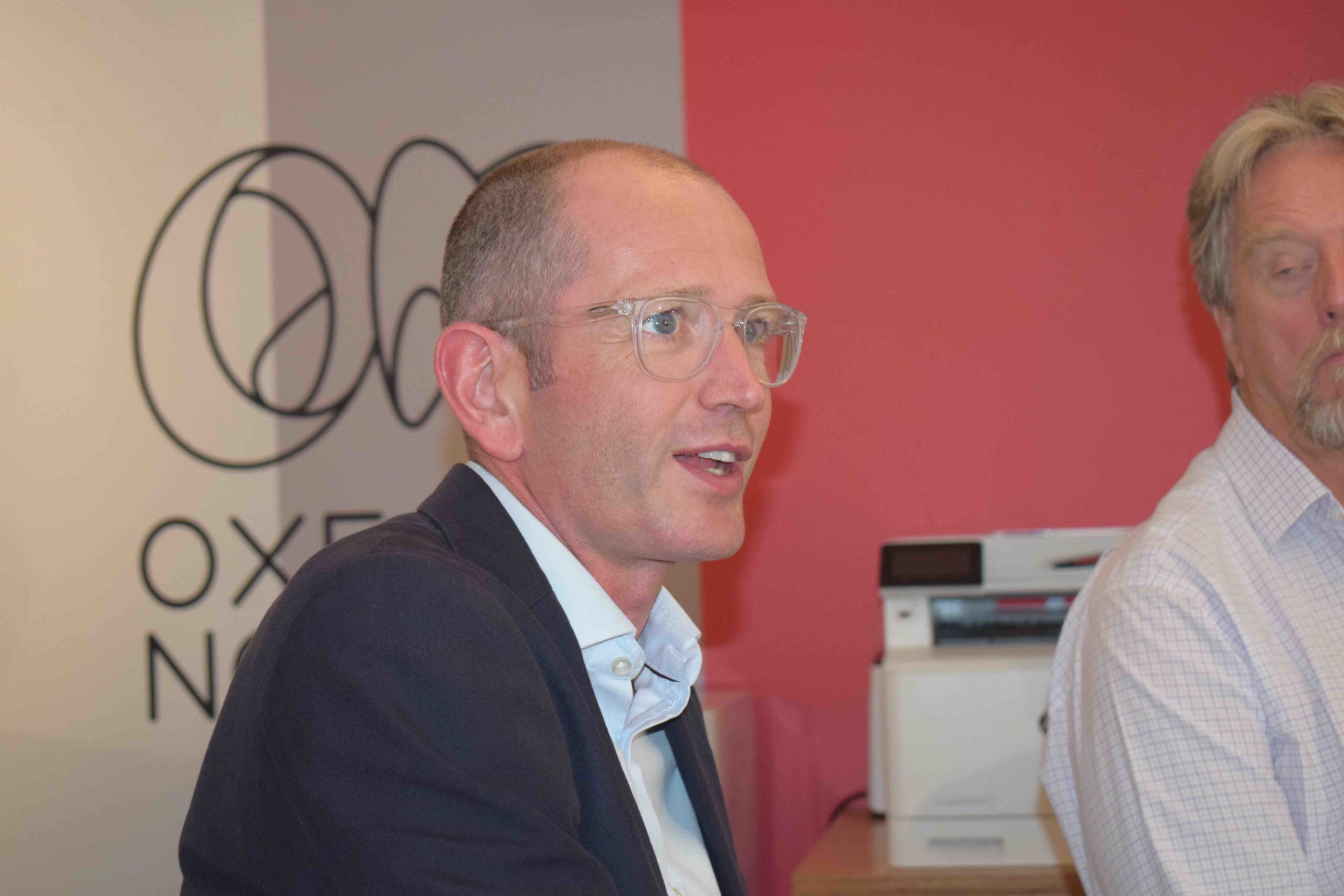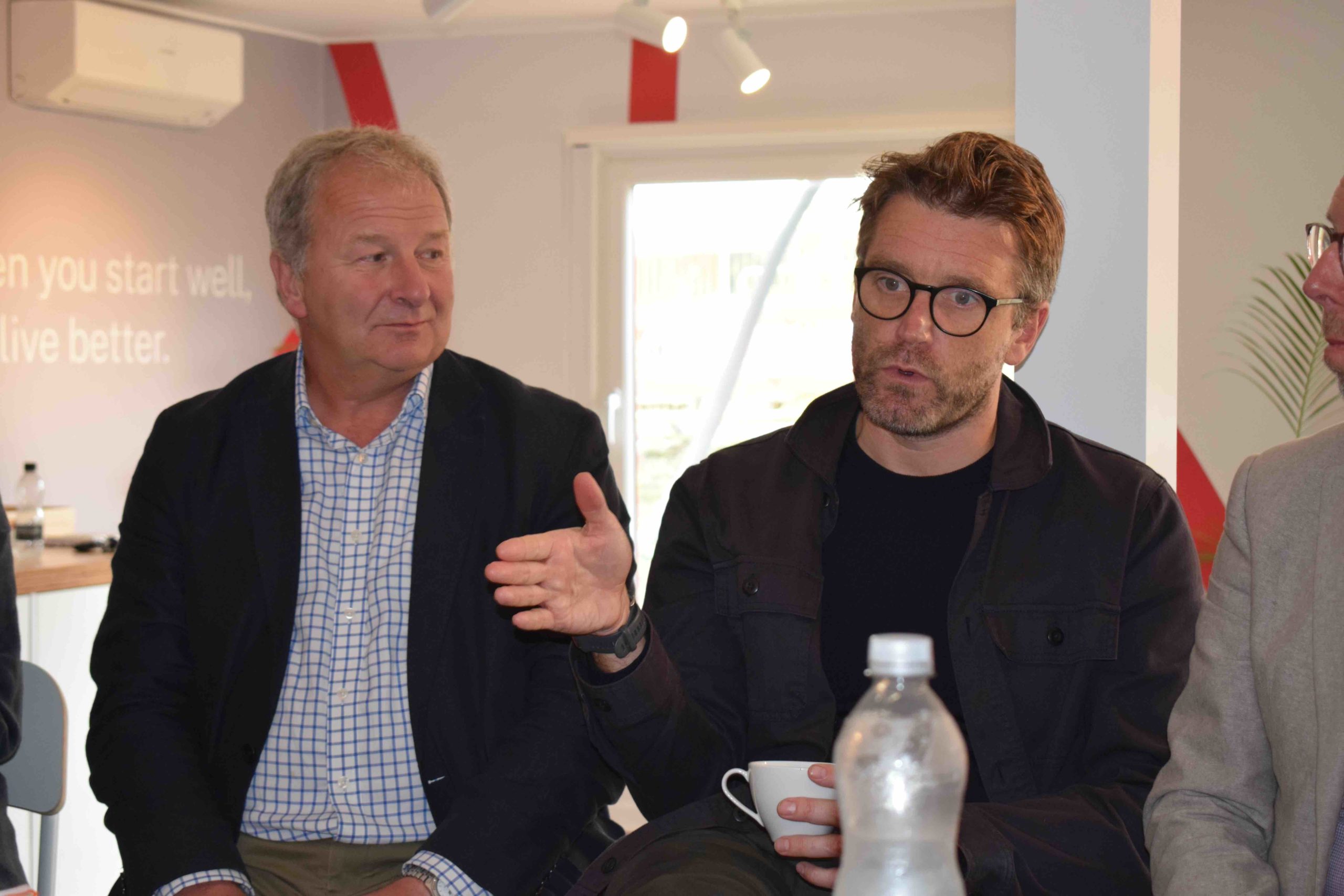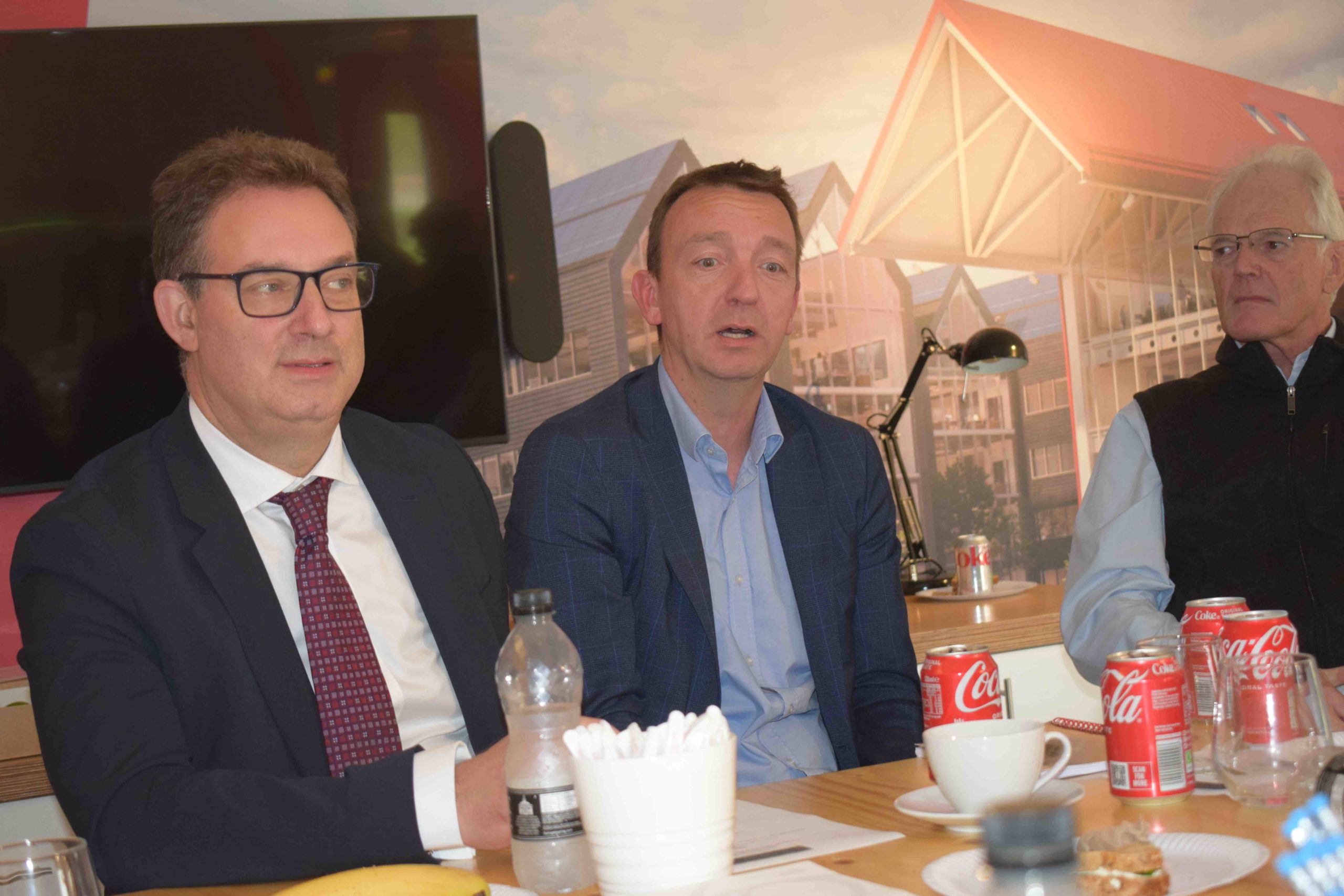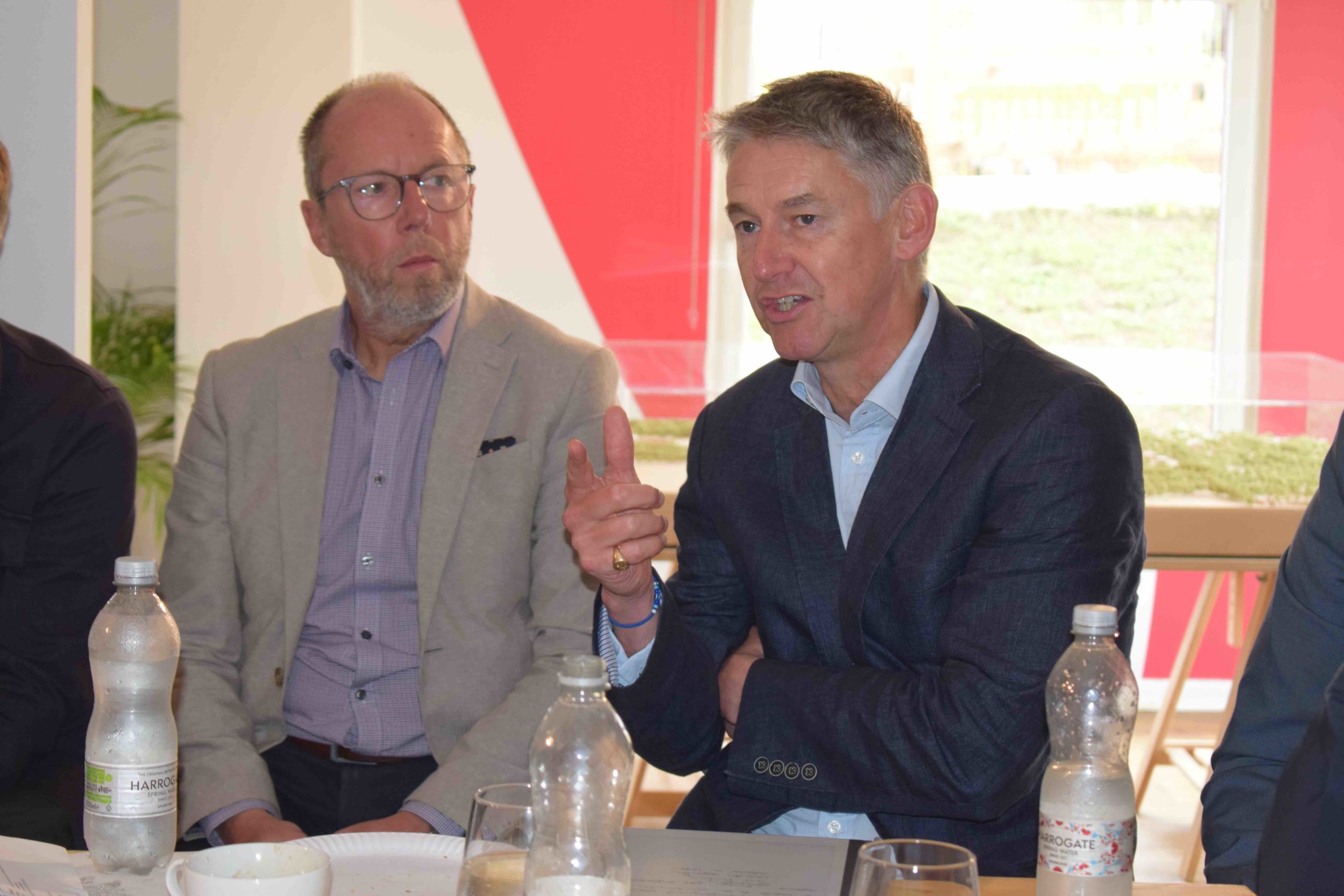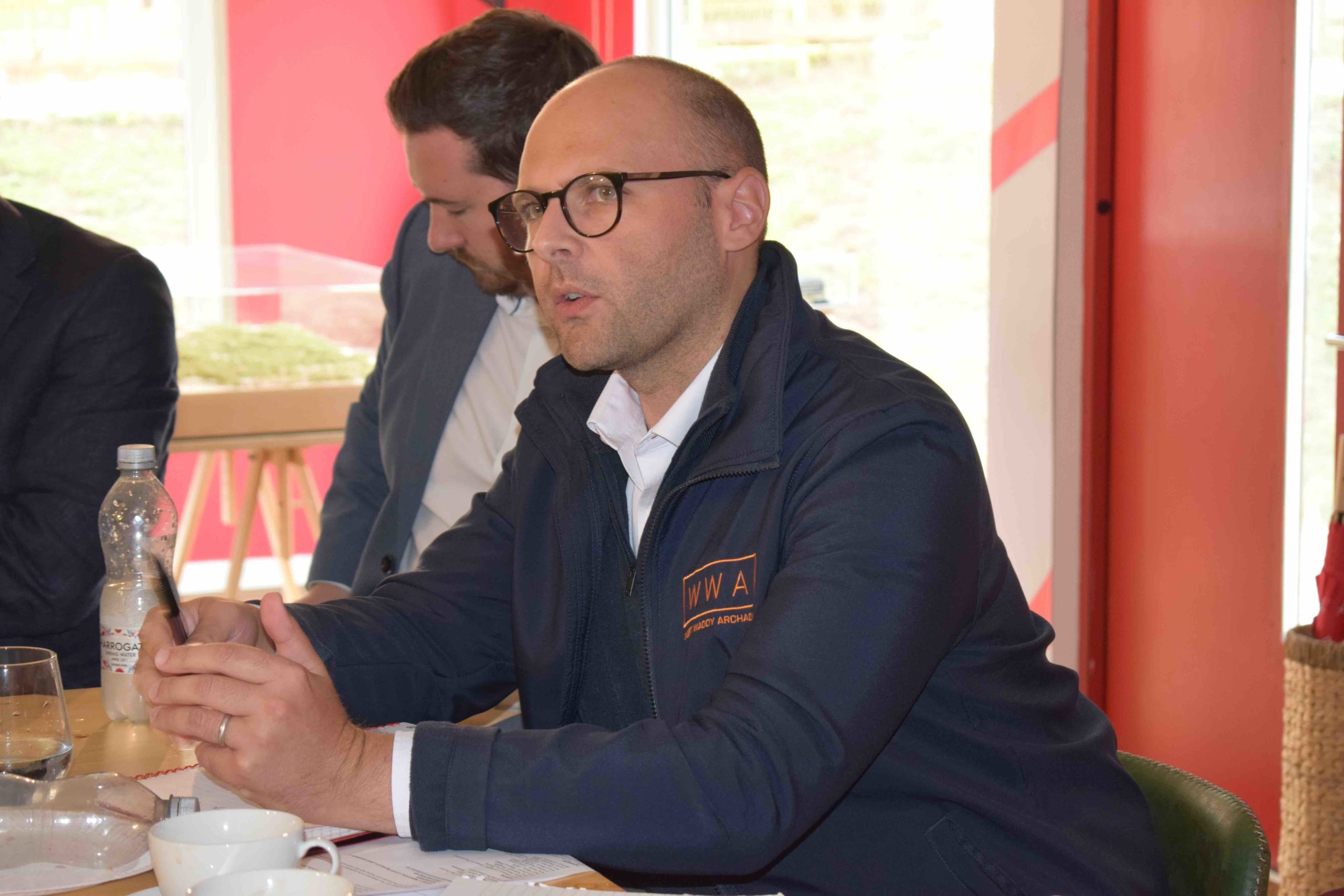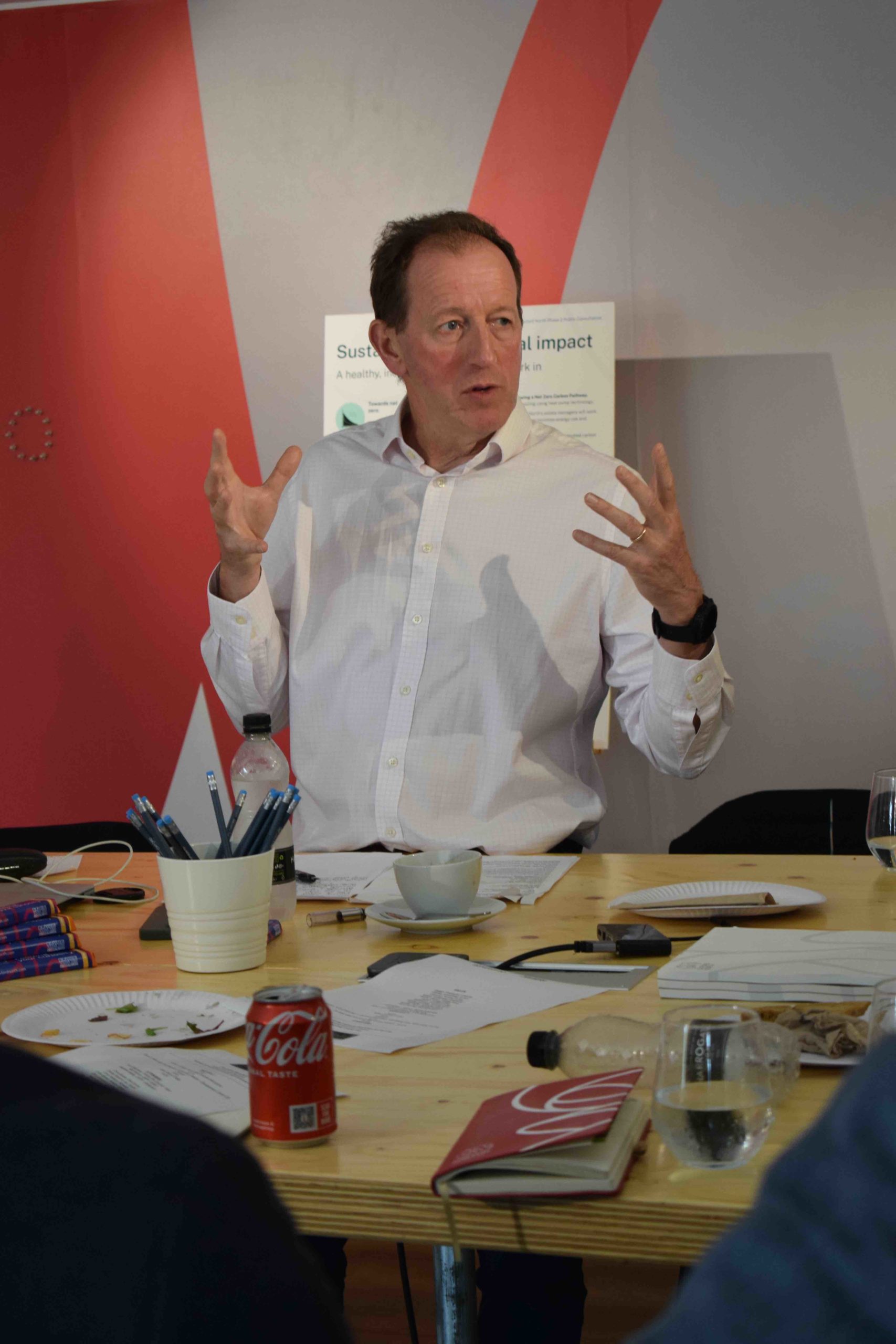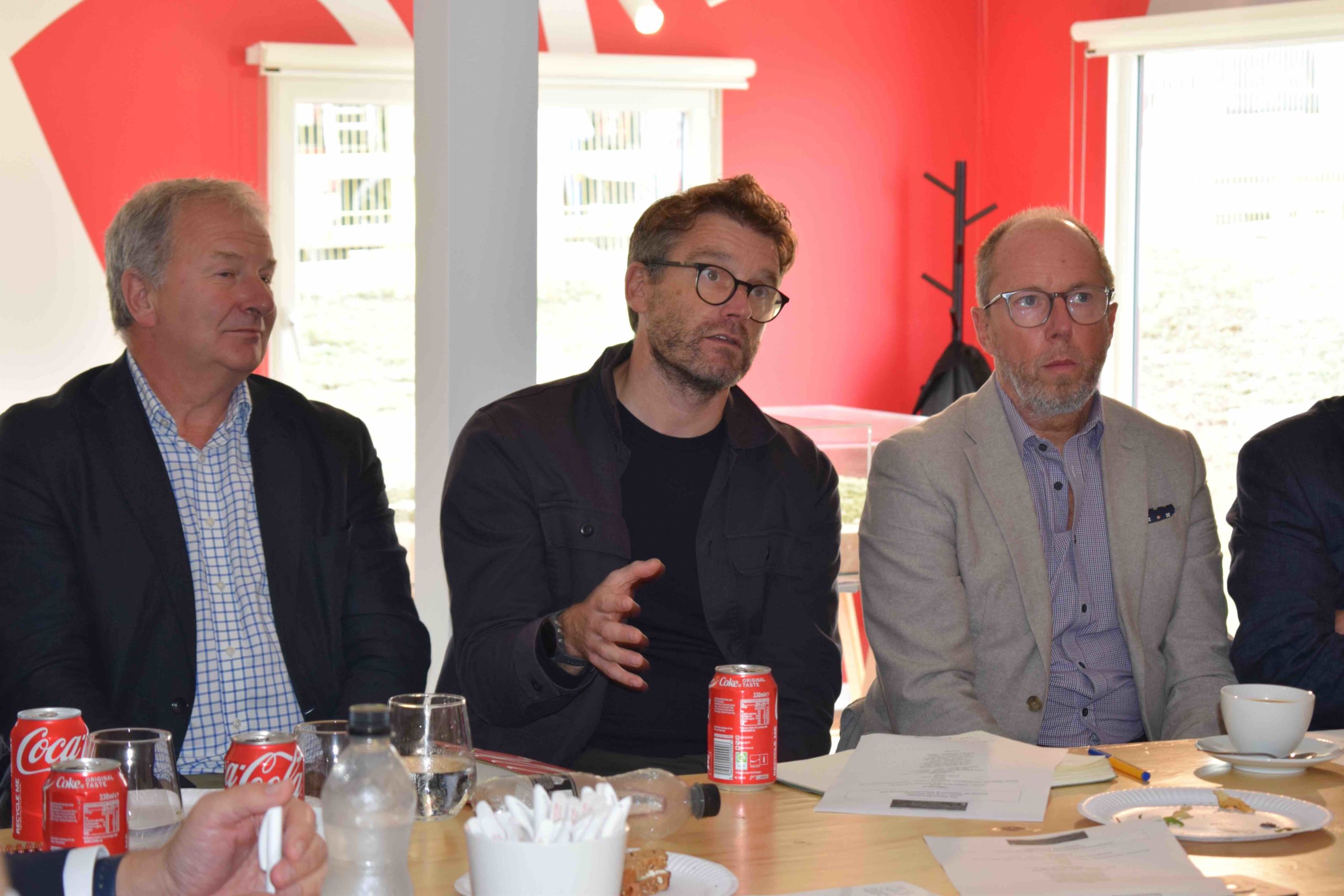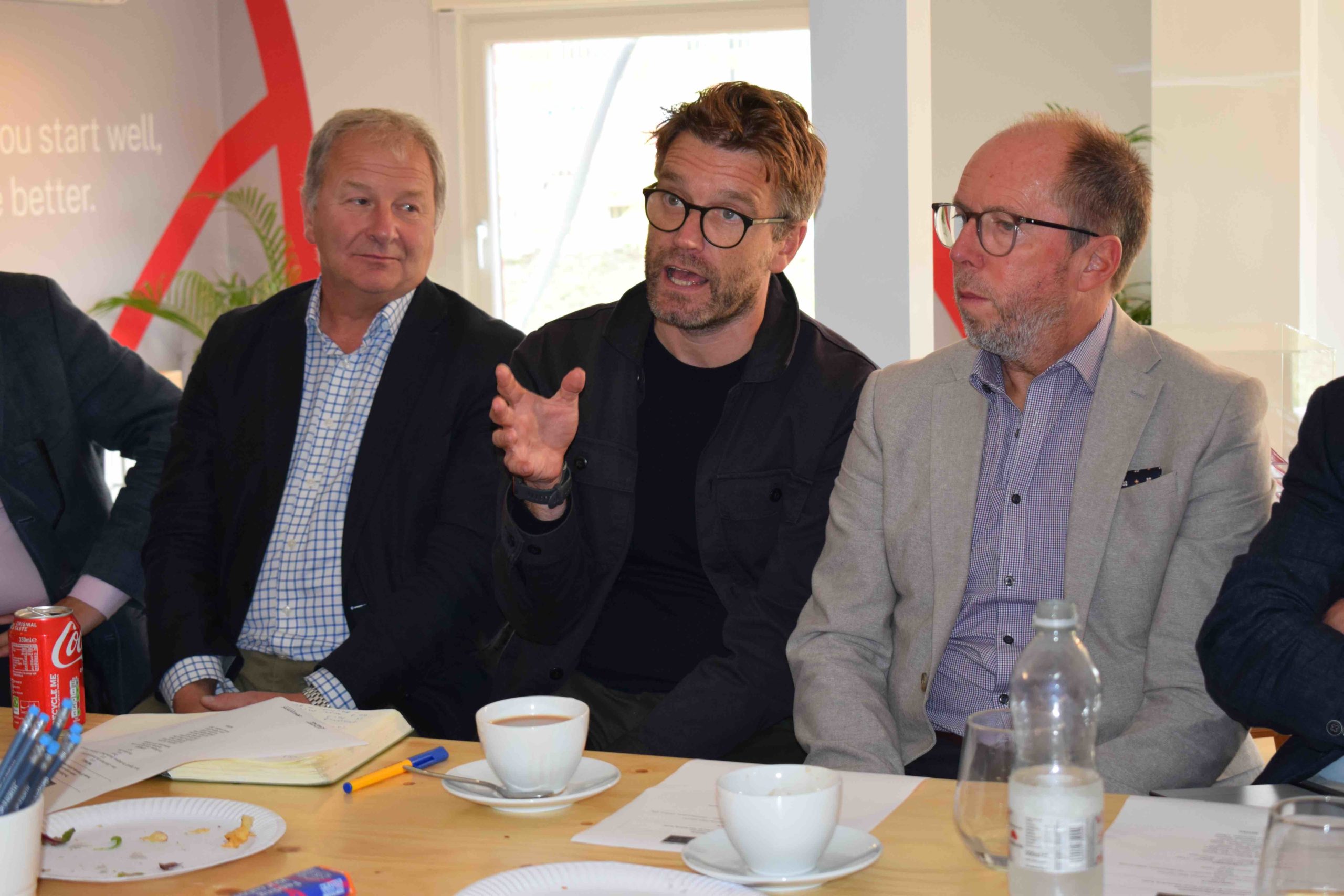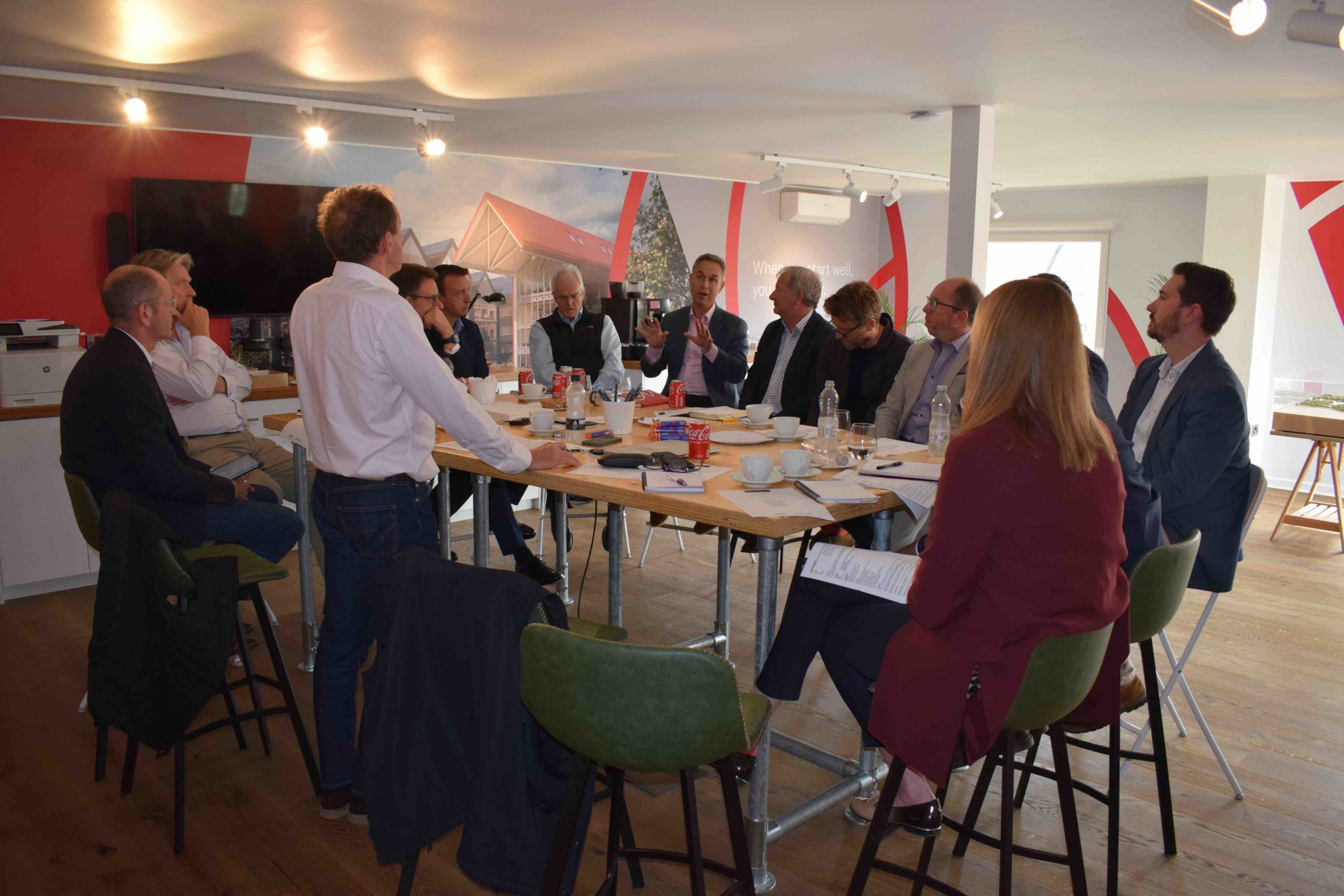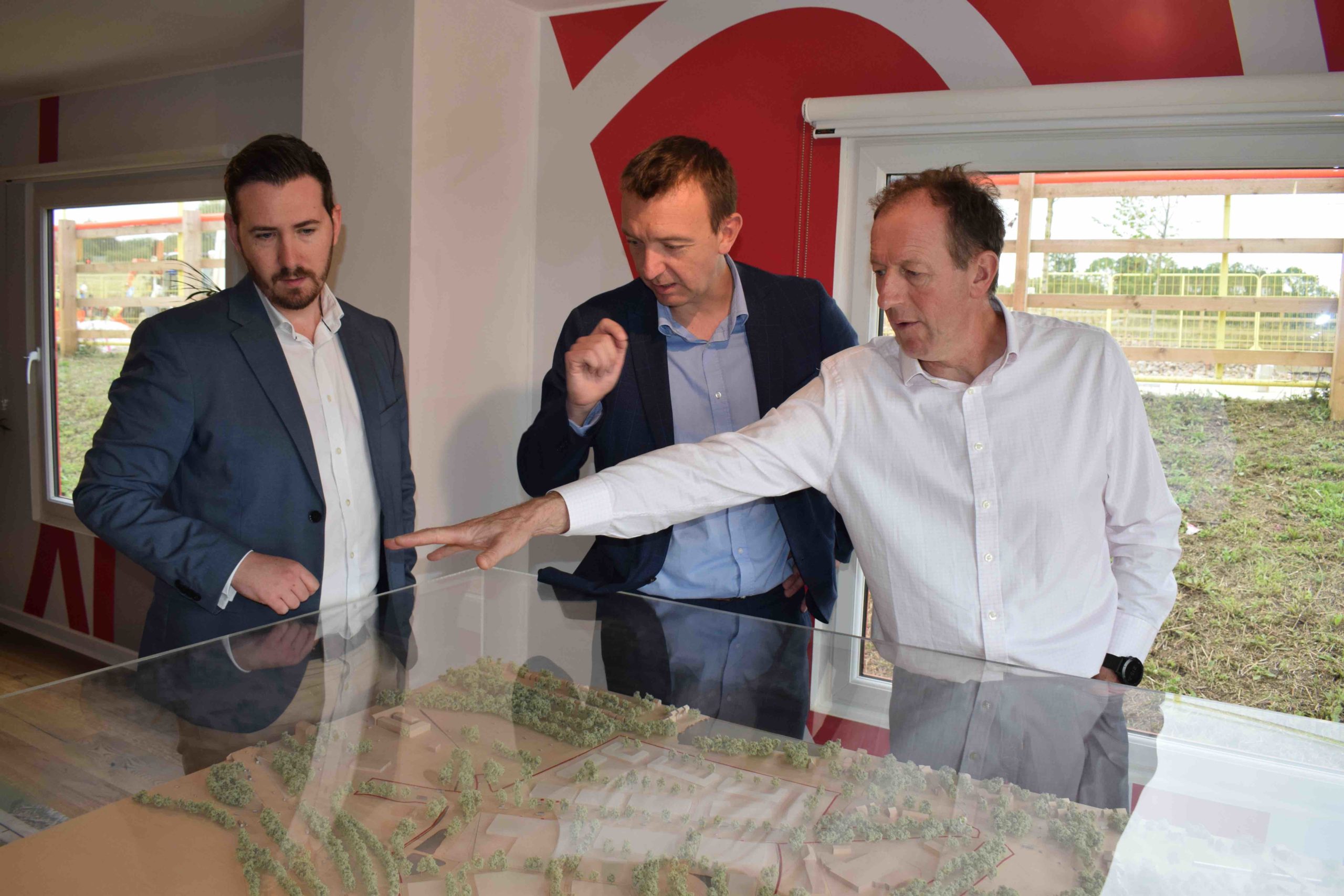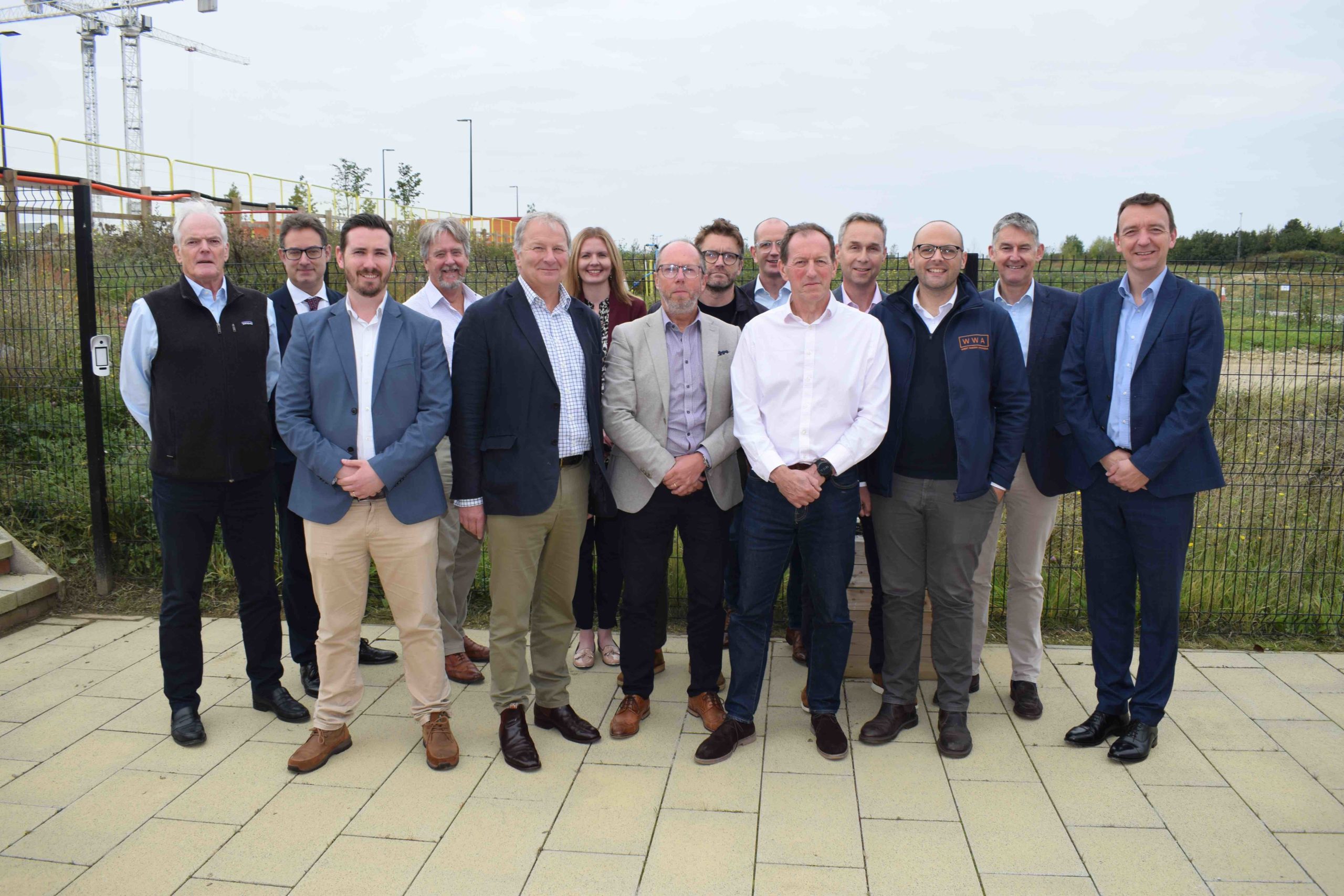Messaging needs to improve to help carry through the major road network changes in Oxford, delegates heard when UKPF and DevComms held the latest round table event (see gallery below).
Our panel at the leadership lunch at Oxford North on September 28, comprised representatives from major developments, planners and architects along with other consultants and experts in the city including city council executive director development Tom Bridgman (pictured top centre).
Transport planner Laura Fitzgerald, director of Motion, based in Reading, praised the work of the city council in trying to get the car out of the city.
She said: “It’s safe to say there’s a lot of emotion with residents but we’re all aware now that we can’t just get in our cars and drive whenever we want to. People are having to make those difficult decisions at city level to think about how we get that sense of place going.
“But I think Oxford’s a unique place because the propensity to walk or cycle is already there. You can’t get in your car without being surrounded with cyclists.”
Her observations of traffic in Reading were that it had reduced at the beginning and end of a week.
“It’s worth noting that people’s working patterns have changed post-Covid so on a Monday or a Friday in Reading you can glide around the town, it’s not an issue.
“And so those kind of peak periods are starting to condense to those days when people are in the office.
“What will really come forward is the climate emergency and the emission zones.
“ULEZ has just been rolled out for London and it will be interesting to see if that does anything further into the outer areas of London in terms of reducing car use because I know there are various other cities around the country who are also looking at zero emissions and that will start to feed into how people will travel as well.
“Electric cars are still very expensive for the general population and obviously the Government isn’t necessarily helping with the transition to EVs given what Rishi said, but you have to appreciate the cost of living I suppose.”
Traffic measures in Oxford have run into massive opposition and Tom Bridgman identified a key reason.
He said: “I think the problem is communications. Explaining it to the public. The county have not won hearts and minds – they Brexitised it. Let’s be brutally honest, they have divided people because their comms is not good. Everybody knows this. You’ve got to take people with you.”
He referred to a German city where changes were made over a 25-year period.
“We are asking a lot of people, very very quickly, to change their patterns, particularly in East Oxford and that’s caused a lot of upset to people.
“Whether it’s right or not, that is the outcome. And the county are not great communicators. That is what needs to change; how you communicate considerable change to people who are brought up using the car.
“I don’t, I cycle everywhere. I can’t be bothered with sitting in traffic jams but Oxford has less traffic now. It’s much more like August but that doesn’t help sell the case because it has changed post-pandemic and I don’t see the same traffic jams.”
The messaging was a theme picked up by Jonathan Headland from WWA Studios.
He said: “If you look at LTNs for example, all the coverage, all the discussion, all the comms, was about how they had to happen, it was inevitable and it was for the greater good.
“There was no discussion about what alternatives there were or what investment was being put into alternatives in terms of intensifying their use.”
Charles Rowton-Lee, head of commercial agency for Savills Oxford, also took up the communications issue, citing the Botley Road bridge closure which is going to take a year longer than planned.
He said: “Oxford is bad at communicating and we have a lot of roadworks all happening at the same time. I don’t think it came as any surprise to anybody that the Botley Road bridge was not going to be open.”
Some Savills staff in Oxford, he said, have ditched their cars for trains and are finding them more reliable.
Mr Bridgman accepted that both the city and county council face a challenge to win support.
He said: “I think the county and the city realise that the narrative needs a huge amount of work and I think that is going to be in place.
“We also need to be appreciative that the county are stepping up with something that is really controversial and this isn’t easy.
“The whole Botley Road issue isn’t in the county’s control. It’s really important to give us the rail infrastructure we need but what it’s done is set back our ability to make the improvements on the road network.”
Highways England had also carried out work on the ring road, another unwelcome disruption for the city council.
Mr Bridgman went on: “The narrative needs shedloads of work and we need to get that right and we need to be really clear on what the benefits are.
“The modelling says in the city centre there will be 50 per cent fewer cars, which will impact on bus flow, which will enable us to untangle the knot which is the city centre, what we can do with Broad Street, whether we can have another look at George Street.”
He said the traffic filters will unlock the city centre and drivers, in future, will have little option but to leave their cars behind.
“A point I make whenever I’m collared by businesses is that, actually, Oxpens is building on one of our car parks, Worcester Street car park is allocated, Nuffield are coming forward with plans there, so, other than the Westgte and Gloucester Green, we won’t have any real ability for people to drive into the city centre.
“So if we want growth, and businesses want growth in the city centre, it can’t be by car because those car parks are full. If we want to grow, it has to be by public transport.”
OxWED director Kevin Minns said he noticed an increase in pedestrians in Frideswide Square in the city centre.
Several delegates referred to the Cowley branch line, an eagerly-awaited reopening of a line and station which could serve The Oxford Science Park and surrounding residential areas.
Richard Venables, senior director for CBRE, saw it as essential.
He said: “With the 4.7 million sq ft of space coming on the market in the next seven-10 years, that’s a lot of the working population coming from a much wider hinterland.
“We have something like 32 million people within an hour’s journey time of Oxford on the rail link and, with Cowley branch line and with East West Rail and everything else, we’ve actually got a modal transport connection, we are really well placed.”
Ms Fitzgerald said, while she liked the principle of Oxford’s 15-minute city concept, Motion moved from the city because staff were unable to afford to live there.
“The reason we left Oxford was because we couldn’t get junior staff and actually, by going to a slightly cheaper place, you open yourself up more, so it’s a challenge for Oxford.
“Opening up the railway network does give them more opportunities but Oxfordshire is quite a rural county so there will always be a place for people who don’t have access to the bus.
“There are massive challenges with buses being viable, they are being propped up left, right and centre and, as new developments come forward, it’s fine to fund them for a period but I’ve yet to see any become viable in their own right.”
Public ownership was suggested but Mr Bridgman pointed to cases where that had failed. He wants traffic filters in place before the next measure, a tax on parking at work.
“I think there is a plan. It’s just about communicating it. It starts with the traffic filters, quickly followed by the workplace parking levy.
“What you get is, you reduce the number of private vehicle movements, you support park and ride, buses become faster and more reliable and people start to use them as a matter of choice as well as cycling and walking.”
Rail improvements are also part of the plan, he said. But, once again communication was central.
“I actually feel this is a question of articulating that plan over a 10-15 year period and then sticking to it with steely determination.
“I think the workplace parking levy is vital within that because, in a sense, that will be a way we can fund quite a lot of this stuff and I hope businesses can see the bigger picture in relation to that opportunity, by having a say on what it is spent on.”
Mr Rowton-Lee was emphatic that he felt a ULEZ would be more equitable than a workplace parking levy.
“I will fight it kicking and screaming, it’s just so unfair,” he said.
Mr Bridgman said efforts to reopen the Cowley branch line have now made their biggest strides forward.
“Along with others, we’ve taken a huge gamble on this, but I think it’s a gamble that’s going to pay off because it now has the momentum.
“In a year and a half or two years we will have a full business case which will benefit the strategic outline business case, so it’s just going to be impossible to ignore.
“And then, we will need to think about how we lever in all the other opportunities about rail investment with East West Rail and more private sector investment. The private sector is going to have to accept the public sector isn’t able to fund all this and to actually deliver the thing.
“But Cowley branch line is in such a good place at the moment and everyone is supporting it. It’s just building that momentum.”
The theme of taking people with you cropped up again at the end of the debate and two aspects of the concept were reported by Paul Vicary of DevComms and Colin Brown of Mission Street, respectively, in the context of development. Each offered their own perspectives.
Mr Vicary said: “People don’t like being preached to and I think people often feel, perhaps because of how developers have acted historically, how they’ve interacted with communities, or possibly haven’t, there’s a perception they are being preached to.
“Too often you go to talk about a fantastic scheme with lots of facilities, but they don’t like it and they don’t like it because they don’t like developers or because they feel they are being told what to do.
“I think there’s a bit of a theme running through today. Just talking to people early is what we need to be doing and taking people with us and selling the broader vison, not just about this big tower, the height, or whatever it may be, but actually what’s the vision, where are we going and what do you want out of this?”
Mr Brown said Mission Street’s approach is to go to communities before presenting them with a scheme.
He said: “Usually, we don’t take a scheme to people first. We will always go and introduce ourselves and have a session and say ‘we are not showing you a scheme, we are introducing who we are and what we do and, by the nature of our business, we are probably going to be involved in delivering some type of space on this site’.
“But first and foremost, we are interested in learning more about the local community and what the itches are that need to be scratched.
“What are the hurts of the past, where developers have turned up and promised amazing things and delivered very little? If you go to someone with a scheme, the first reaction is ‘what does it matter what I say? You’ve already designed it and that’s what you’re building.”
Oxford’s major forthcoming developments and the problems around heights, density and quality were also discussed.
Image front of gallery below (l-r): Paul Vicary, director for DevComms; Richard Venables, senior director for CBRE; Matthew Battle, managing director for UK Property Forums; Jonathan Headland, urban design director for WWA Studios; Hugh Blaza, consultant for UK Property Forums; Charles Bushe, group commercial director for DevComms; William Donger, director for Thomas White Oxford; Charles Rowton-Lee, head of commercial agency and director for Savills Oxford; Dan Lampard, senior director and head of Thames Valley for Lichfields; Laura Fitzgerald, director for Motion; Huw Mellor, partner for Carter Jonas; Tom Bridgman, executive director development for Oxford City Council, Kevin Minns, managing director for OxWED and Colin Brown, director development for Mission Street.
© Thames Tap (powered by ukpropertyforums.com).
Sign up to receive our weekly free journal, The Forum here.









